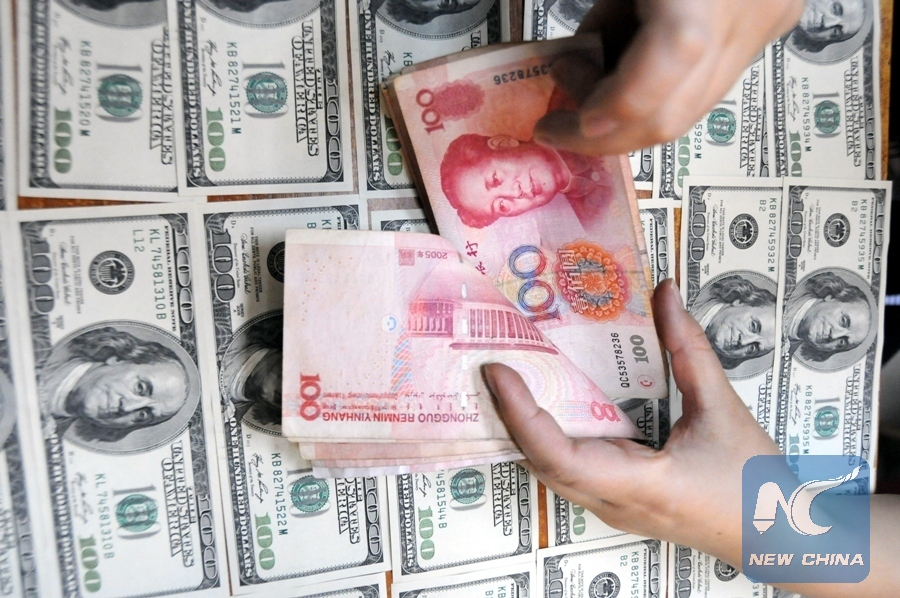File photo (Xinhua)
NEW YORK, Aug. 8 (Xinhua) -- The rise in China's foreign exchange reserves in July reflects the facts that the country's cross-border capital flows have stabilized and that Chinese economy stands on a firmer footing, analysts said here on Tuesday.
China's foreign exchange reserves reached 3.081 trillion U.S. dollars by the end of July, marking a sixth consecutive rise, according to the People's Bank of China. It is the first time that the reserves expanded for six months in a row since June 2014.
"It gives some confidence for the rest of the year and removes some of the anxiety about a larger run on the yuan," said Robert Savage, CEO of CC Track Solutions.
Analysts attributed the rise to a weaker U.S. dollar and the slowdown of capital outflows as a result of effective regulations and improved economy.
The dollar went down as much as 10 percent this year and reached a 15-month low against a basket of major currencies.
In July alone, the dollar index, which measures the greenback against six major peers, went down 2.89 percent, resulting in appreciation of non-U.S. dollar currencies, including the Euro and Chinese yuan.
Besides the weaker dollar, policy changes put in place in China to ease capital outflows have had the desired effect and restored confidence in investors, according to Stephen Simonis Sr., currency consultant for FXDD Global.
There had been concerns over capital outflows last year as China faces downward economic pressure and as the yuan declined against U.S. dollar.
Now as the Chinese economy moves toward better growth prospects this year and the yuan stabilizes, foreign exchange reserves have been increasing since February.
China's economy expanded 6.9 percent for the first half of 2017, with consumption and services, and new innovation-driven economic sectors taking up larger roles in the economy.
The International Monetary Fund revised up China's growth forecast for 2017 and 2018 to 6.7 percent and 6.4 percent respectively.
"A stronger yuan, resilient growth and buoyant markets all helped keep the brakes on outflows," said Bloomberg chief Asia economist Tom Orlik.
Looking forward, experts said the risk of further tightening of credit remains real, more because of internal leverage concerns rather than external factors.
"China is growing fast enough, its banks and other companies are strong enough to pay down debt and deleverage with a soft-landing scenario," said Savage.
However, Savage said that the risk to the yuan and to China remains one about growth and how leverage plays a role in it along with the confidence in the government.
Talking about the impact of the Fed balance sheet normalization process which is widely believed to be starting in September, Savage said it will be important for markets globally.
Orlik said that the normalization process is set to add complexity to China's management of the capital account.
China's State Administration of Foreign Exchange has said the country will further improve its management system to facilitate cross-border investment and fund-raising, while guarding against risks.


